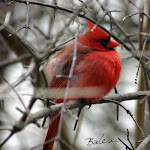•

"In the swamp,
in secluded recesses,
A shy and hidden bird is warbling a song.
Solitary, the thrush,
The hermit, withdrawn to himself, avoiding the settlements,
Sings by himself a song.
Song of the bleeding throat!
Death’s outlet song of life—(for well, dear brother, I know
If thou wast not gifted to sing, thou would’st surely die.)”
- From When Lilacs Last in the Door-yard Bloom’d
an elegy written by Walt Whitman
shortly after the assassination of Abraham Lincoln in 1865.
Solitary, the thrush,
The hermit, withdrawn to himself, avoiding the settlements,
Sings by himself a song.
Song of the bleeding throat!
Death’s outlet song of life—(for well, dear brother, I know
If thou wast not gifted to sing, thou would’st surely die.)”
- From When Lilacs Last in the Door-yard Bloom’d
an elegy written by Walt Whitman
shortly after the assassination of Abraham Lincoln in 1865.
Poet Whitman knew this species. Heard it sing its warbling song, shy and hidden.
Sadly, at this time of the year on its winter range here in the South, the hermit thrush does not sing. There's no need. No territory to defend. No female to woo. No dead president to mourn.
Cornell describes it as, "An unassuming bird with a lovely, melancholy song." And that's pretty much spot on. Unassuming.
I first took the above photograph and posted it, four years ago. I'm pleased to say the hermits are back. I saw one quietly, and indeed, unassuming, hoping around my home in the woods near my studio last Tuesday morning.
Lucky me.
Lucky me.
•



































































3 comments:
I was lucky enough a couple years ago to catch the hermit thrush that winters on the ridge behind my house just before he flew north. He sang! It was a soft, tentative version of the song, nothing like the full-throated version you'd hear on the breeding grounds, but it was still a treat.
Perfect timing Rikki.
I keep hoping to encounter one at Ijams, hormones cranking up, beginning to practice his song just before he leaves to go north.
But it hasn't happened yet.
My recollection is this happened about the same time the sapsuckers start showing their breeding colors (and then deprive of us their presence).
You probably need to be close by as well. It sounded like a song coming from far off, but the bird was just 15 yards away in the stand of sparkleberry where I can often find him.
Post a Comment